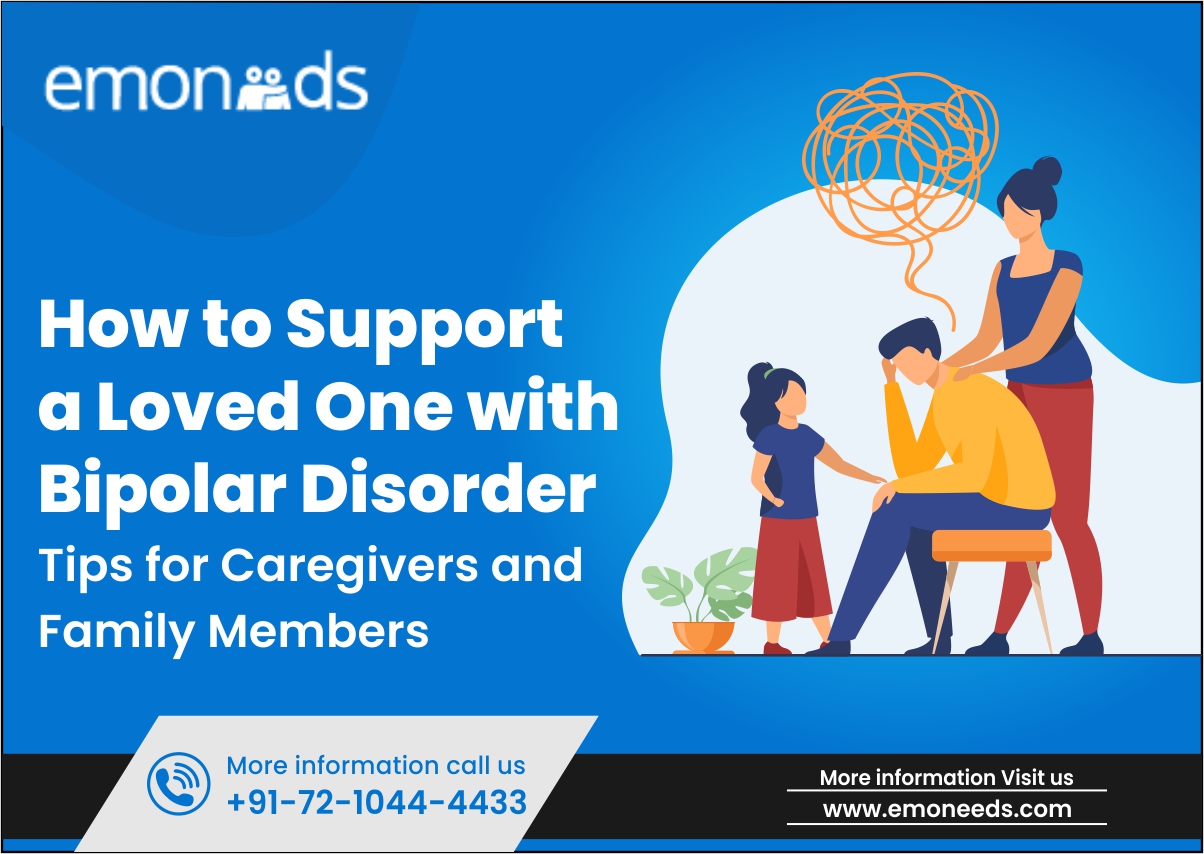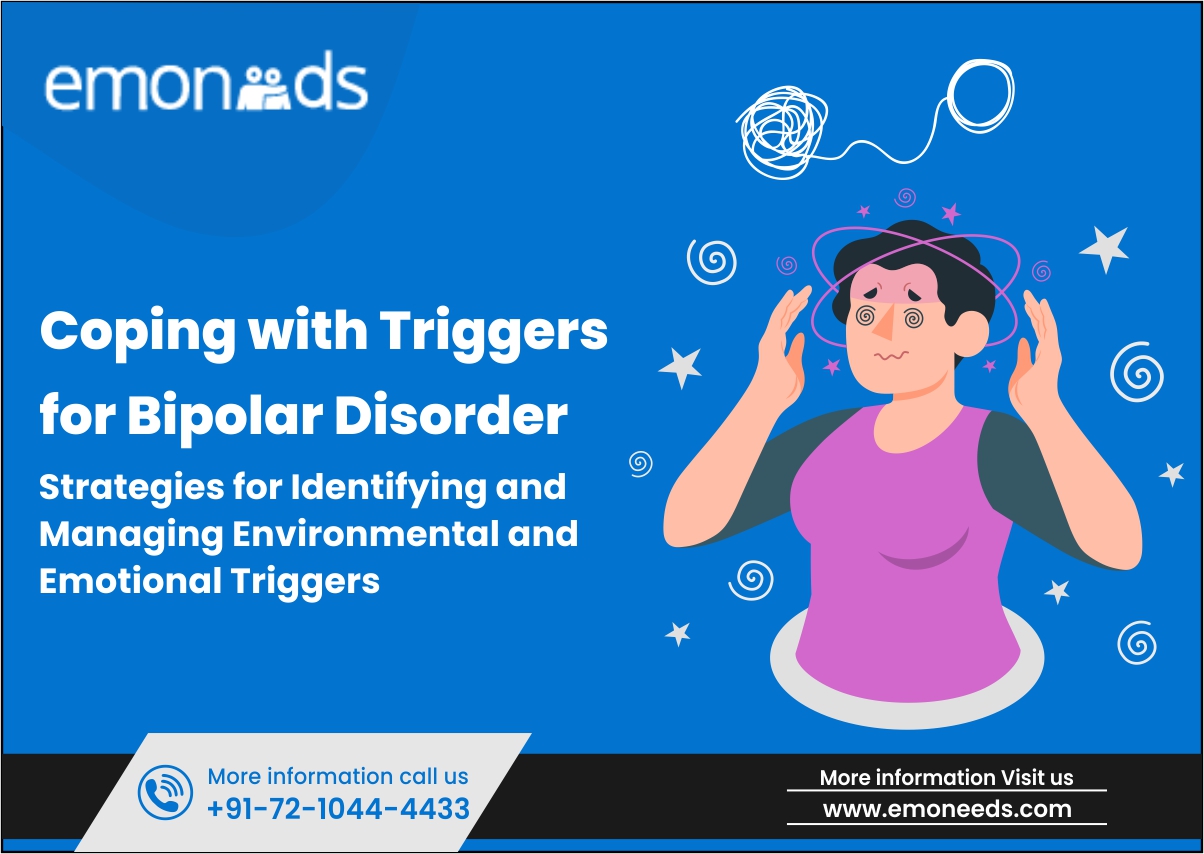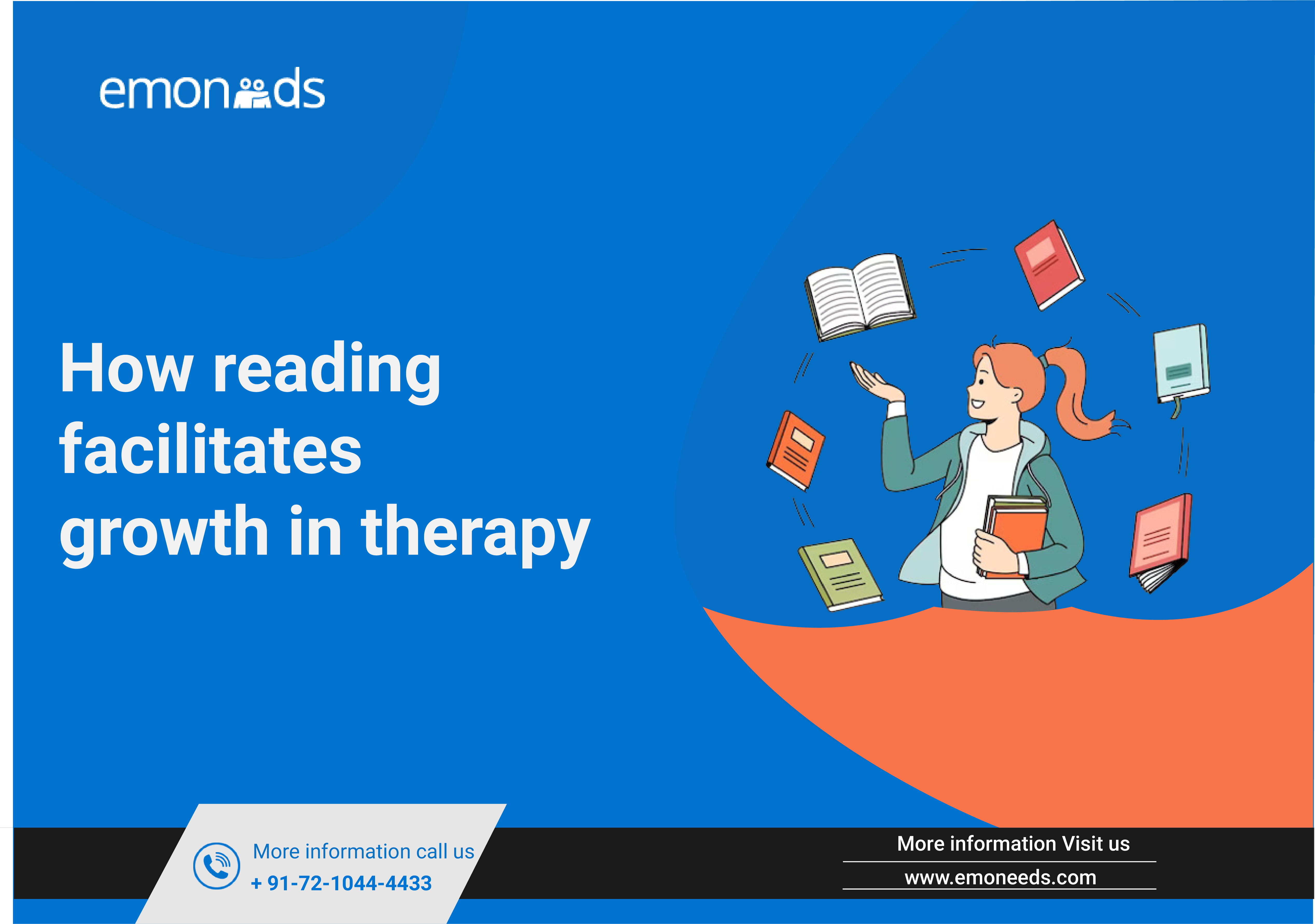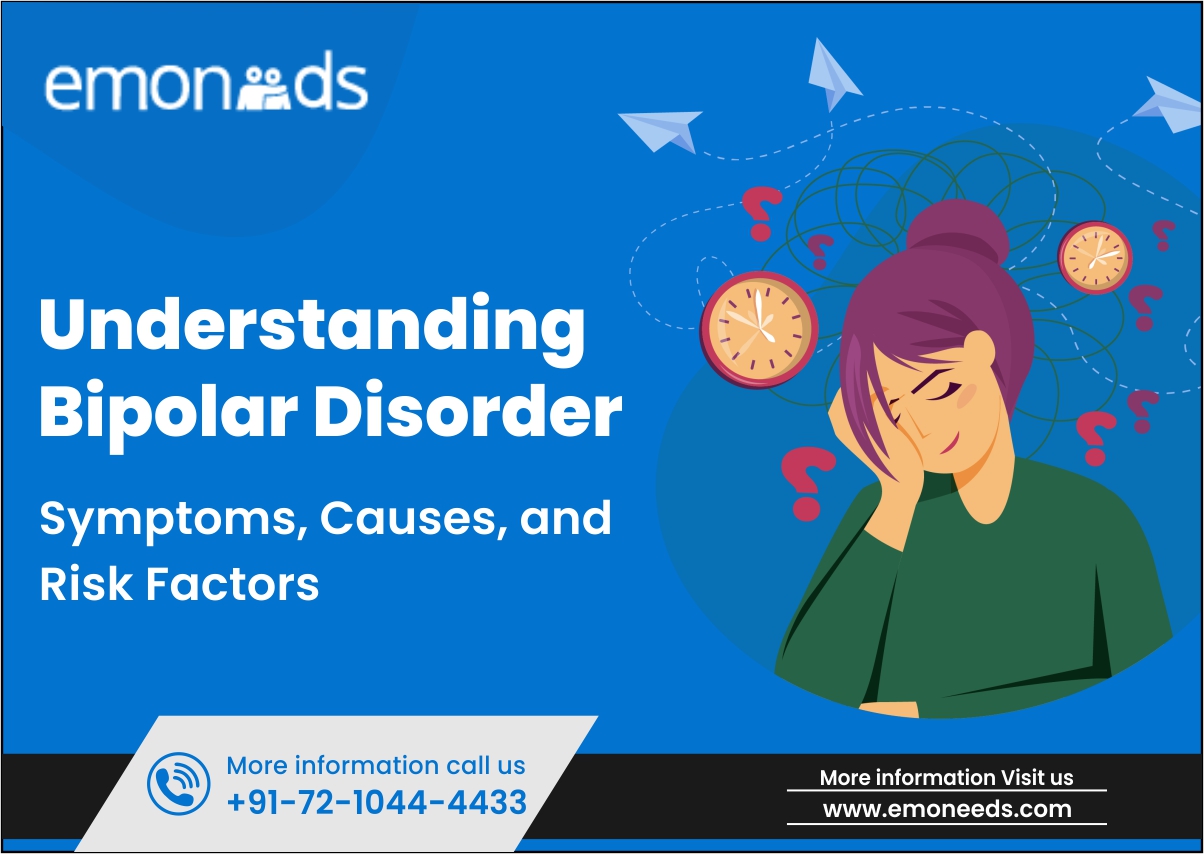
- July 31, 2023
- Saloni Kabra
- 0
Living with bipolar disorder can be an intense and challenging journey, not only for the individuals directly affected but also for their caregivers and family members. The impact of this mental health condition can be far-reaching, affecting relationships, daily routines, and overall well-being. As a caregiver or family member, your support plays a crucial role in helping your loved one navigate the complexities of bipolar disorder. In this blog, we will explore valuable tips and strategies to provide compassionate and effective support to someone with bipolar disorder.
Table of Contents
ToggleUnderstanding Bipolar Disorder
To provide the best support, it is essential to have a solid understanding of bipolar disorder. Bipolar disorder is a mental health condition characterized by extreme mood swings, ranging from periods of intense mania to episodes of deep depression. These mood swings can vary in duration and severity, and they significantly impact the affected individual’s thoughts, emotions, and behaviors.
It’s important to note that bipolar disorder is not simply a result of moodiness or a lack of willpower. It is a genuine medical condition caused by a combination of genetic, environmental, and chemical factors in the brain. By gaining a deeper understanding of bipolar disorder, you can cultivate empathy and develop effective strategies to support your loved one.
The Role of Caregivers and Family Members
As a caregiver or family member, you are an invaluable source of support for your loved one with bipolar disorder. Your presence, understanding, and encouragement can make a significant difference in their well-being. By actively participating in their journey, you help create a safe and nurturing environment that promotes stability and recovery.
One of the most important roles you play is that of a steadfast listener and advocate. Being open and attentive to your loved one’s experiences allows them to express their thoughts and emotions freely. Encourage them to share their challenges, fears, and triumphs, offering reassurance and validation along the way.
Building a Supportive and Communicative Environment
Creating a supportive and communicative environment is key to helping your loved one manage their bipolar disorder effectively. By fostering open lines of communication, you provide them with a safe space to express their needs and concerns without judgment. Here are some tips for building such an environment:
- Active Listening: Practice active listening by giving your undivided attention, maintaining eye contact, and providing verbal and non-verbal cues that show you are engaged in the conversation. Avoid interrupting or offering immediate solutions—sometimes, all they need is a listening ear.
- Empathy and Validation: Show empathy by trying to understand their experiences from their perspective. Validate their emotions and let them know that their feelings are legitimate and acknowledged.
- Respectful Dialogue: Practice open and honest communication, even during challenging times. Foster a non-confrontational atmosphere where concerns can be addressed constructively.
Recognizing Warning Signs and Triggers
Understanding the warning signs and triggers of bipolar disorder can help you and your loved one anticipate and manage mood swings more effectively. By recognizing patterns, you can provide timely support and potentially prevent episodes from escalating. Here are some common warning signs and triggers to look out for:
- Changes in Sleep Patterns: Noticeable changes in sleep patterns, such as insomnia or excessive sleep, can indicate an impending mood swing.
- Extreme Changes in Energy Levels: Pay attention to sudden shifts in energy levels, whether it be heightened restlessness and hyperactivity during manic episodes or persistent fatigue and low motivation during depressive episodes.
- Social Withdrawal: Isolating oneself from social activities and loved ones may signal the onset of a depressive episode.
- Stressful Life Events: Major life changes, conflicts, or significant stressors can trigger mood swings. Take note of such events and be prepared to offer support during these times.
Encouraging Treatment and Medication Adherence
Treatment and medication adherence are vital aspects of managing bipolar disorder effectively. As a caregiver or family member, you can play a supportive role in encouraging your loved one to seek professional help and adhere to their treatment plan. Here are some tips to consider:
- Encourage Professional Help: Help your loved one find a reputable mental health professional experienced in treating bipolar disorder. Offer to assist in scheduling appointments or accompanying them to therapy sessions if needed.
- Be a Pillar of Support: Medication is often a crucial part of bipolar disorder treatment. Encourage your loved one to take their medication as prescribed and remind them of the positive impact it can have on their well-being.
- Assist in Routine Maintenance: Establishing and maintaining a routine can provide stability for someone with bipolar disorder. Offer assistance in creating daily schedules, organizing medication, and maintaining a balanced lifestyle.
Self-Care for Caregivers and Family Members
Caring for someone with bipolar disorder can be emotionally and physically demanding. It’s essential to prioritize your own well-being to ensure you can provide consistent support. Here are some self-care strategies for caregivers and family members:
- Set Boundaries: Establish clear boundaries to protect your own mental and emotional health. Understand that you cannot solve all their problems or be available at all times.
- Seek Support: Connect with other caregivers or join support groups where you can share experiences, seek advice, and find solace in knowing you are not alone.
- Practice Self-Care Activities: Engage in activities that bring you joy and relaxation. This could include hobbies, exercise, mindfulness, or spending time with loved ones.
Crisis Management and Emergency Plans
Despite everyone’s best efforts, there may be times when a crisis or severe mood swing occurs. It is crucial to have an emergency plan in place to handle such situations effectively. Here are steps to consider when creating an emergency plan:
- Involve Your Loved One: Collaborate with your loved one to develop an emergency plan. Encourage them to share their preferences, coping strategies, and any specific actions they find helpful during crises.
- Identify Emergency Contacts: Compile a list of emergency contacts, including mental health professionals, crisis hotlines, and trusted friends or family members who can provide support during difficult times.
- Implement Crisis Management Techniques: Learn about crisis management techniques, such as de-escalation strategies, and practice them with your loved one. This can help diffuse intense situations and prevent harm.
Nurturing Hope and Celebrating Progress
As a caregiver or family member, nurturing hope and celebrating progress are essential components of supporting your loved one with bipolar disorder. The journey toward managing bipolar disorder can be filled with ups and downs, but acknowledging and celebrating achievements, no matter how small can be incredibly motivating and uplifting.
- Acknowledge Efforts: Recognize the effort your loved one puts into managing their condition and express your appreciation for their dedication. Acknowledging their determination to overcome challenges can boost their self-esteem and reinforce positive behaviors.
- Celebrate Milestones: Celebrate milestones and achievements along the way, such as completing therapy sessions, adhering to medication regimens, or implementing coping strategies effectively. These small victories contribute to the overall progress and deserve recognition.
- Embrace Hope: Offer words of hope and encouragement during difficult times. Let your loved one know that with time, support, and proper management, life can improve, and they can experience greater stability and happiness.
- Practice Positivity: Encourage a positive outlook and mindset, both for yourself and your loved one. Emphasize the importance of focusing on strengths, resilience, and the potential for growth, rather than dwelling on setbacks.
Conclusion
Supporting a loved one with bipolar disorder requires patience, understanding, and ongoing education. By following these steps, you can make a significant positive impact on their well-being. Remember, your unwavering support can be a beacon of hope during their journey toward stability and recovery. If you are looking for additional resources and support in your journey of supporting a loved one with bipolar disorder, Emoneeds is here to help.
Emoneeds is a trusted online community dedicated to mental health support and education. Remember, you are not alone in this journey. Visit Emoneeds today and discover the support and guidance you need to navigate the challenges of bipolar disorder alongside your loved one.
Related Post
- How to Support a Loved One with Bipolar Disorder: Tips for Caregivers and
Family Members - Medications for Bipolar Disorder Types, Side Effects, and Effectiveness
- What You Need to Know About Relapse in Bipolar Disorder
- Coping with Bipolar Disorder: Strategies for Managing Symptoms and
Improving Quality of Life


















